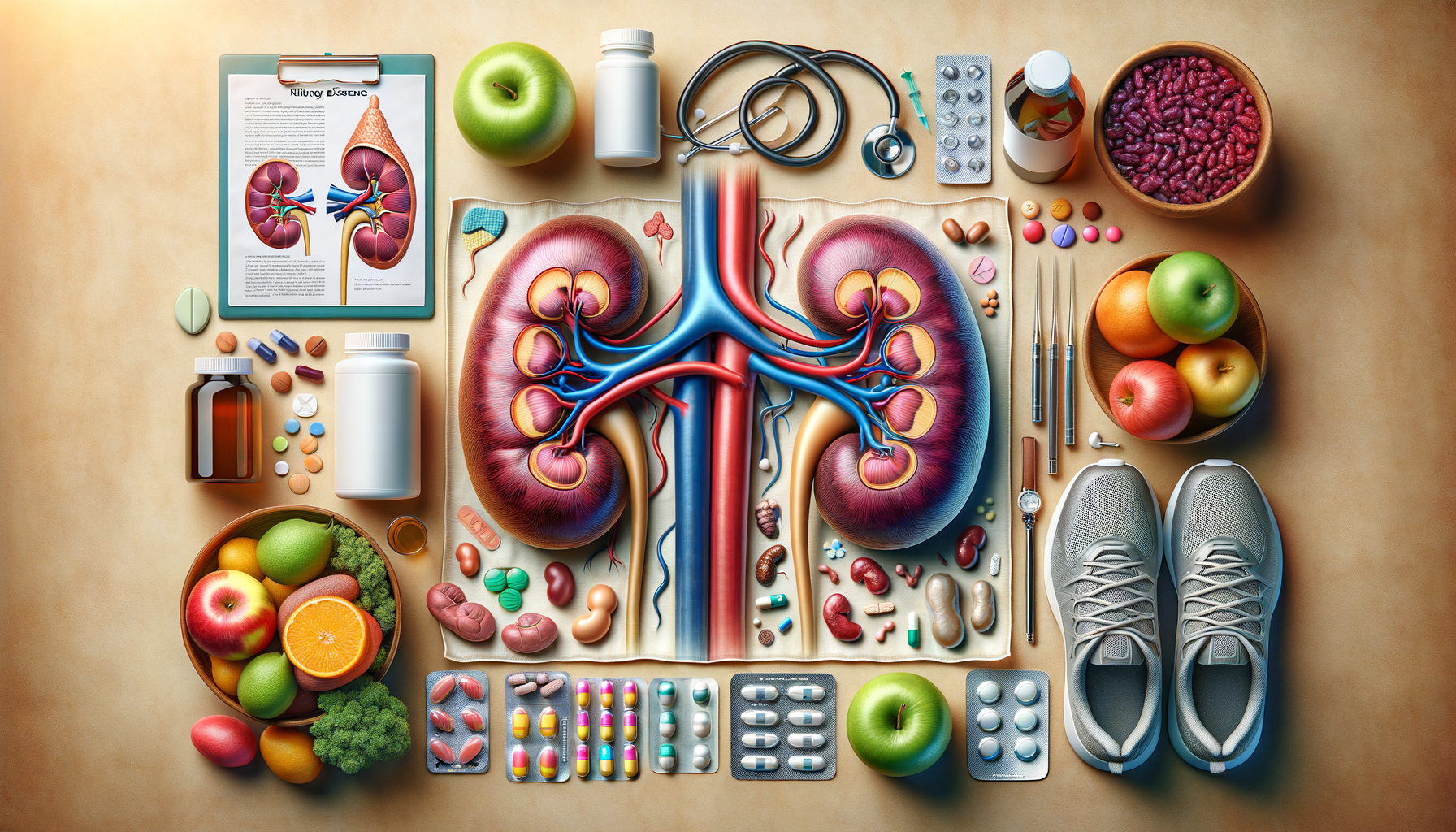Introduction to Kidney Disease
Kidney disease is a significant health issue affecting millions worldwide. The kidneys play a vital role in filtering waste and excess fluids from the blood, maintaining a balance of electrolytes, and producing hormones that regulate blood pressure. When kidneys are impaired, these functions are compromised, leading to a range of health problems. Understanding the treatment for kidney disease is crucial for those affected, as early intervention can slow the disease’s progression and improve quality of life.
The importance of recognizing early signs cannot be overstated. Symptoms like fatigue, swelling in the ankles and feet, and changes in urine output might seem minor but can indicate underlying kidney problems. Regular check-ups and monitoring are essential for those at risk, particularly individuals with diabetes or hypertension, as these conditions often lead to kidney issues.
Exploring Kidney Treatment Options
Treatment for kidney disease varies depending on the stage and underlying cause. For early-stage kidney disease, lifestyle changes and medication are often effective. These might include:
- Dietary adjustments to reduce sodium and protein intake
- Medications to control blood pressure and manage diabetes
- Regular exercise to maintain a healthy weight
As kidney function declines, more intensive treatments may become necessary. Dialysis is a common approach for advanced kidney disease, where a machine filters the blood outside the body. However, there are alternatives to dialysis that some patients may explore, such as kidney transplantation. A transplant can offer a more permanent solution, but it requires a suitable donor and comes with its own set of challenges, including immune system suppression to prevent organ rejection.
Innovative treatments are continually being researched, offering hope for improved outcomes. Stem cell therapy and regenerative medicine are emerging fields that hold potential for repairing kidney tissue and restoring function, although these are not yet widely available.
Stage 3 Kidney Disease Management
Stage 3 kidney disease is often a pivotal point in the progression of kidney damage. At this stage, kidney function is moderately reduced, and symptoms may become more noticeable. Managing stage 3 kidney disease involves a comprehensive approach to slow further decline and maintain overall health.
Key strategies include:
- Strict control of blood pressure and blood sugar levels
- Monitoring kidney function through regular blood tests
- Adhering to a kidney-friendly diet low in phosphorus and potassium
Medication management is crucial, as certain drugs can exacerbate kidney damage. Patients should work closely with healthcare providers to ensure that all medications are kidney-safe. Additionally, lifestyle modifications like quitting smoking and reducing alcohol intake can have a significant positive impact.
Education and support are also vital components of managing stage 3 kidney disease. Patients benefit from understanding their condition and the importance of adherence to treatment plans. Support groups and counseling can provide emotional support and practical advice.
Innovations in Kidney Disease Treatment
Recent advancements in medical technology and research are paving the way for new and improved kidney treatment options. One promising area is the development of wearable dialysis devices, which aim to offer patients greater mobility and convenience compared to traditional dialysis machines. These devices are still in the experimental phase but represent a significant step forward in patient-centered care.
Another exciting development is the use of artificial intelligence (AI) in predicting kidney disease progression. AI algorithms can analyze vast amounts of patient data to identify patterns and predict outcomes, allowing for more personalized treatment plans. This technology is still evolving but holds great promise for enhancing the precision of kidney care.
Furthermore, genetic research is uncovering the hereditary factors that contribute to kidney disease, opening the door to targeted therapies that could prevent or delay the onset of the disease in high-risk individuals. These innovations highlight the dynamic nature of kidney disease treatment and the ongoing efforts to improve patient outcomes.
Conclusion: Taking Control of Kidney Health
Managing kidney disease requires a proactive approach and a commitment to lifestyle changes and medical management. By understanding the various treatment options and recognizing the importance of early intervention, individuals can take significant steps toward preserving kidney function and enhancing their quality of life.
For those living with kidney disease, staying informed and engaged with healthcare providers is essential. Regular monitoring, adherence to treatment plans, and a supportive network can make a substantial difference. As research and technology continue to advance, the outlook for kidney disease patients will likely improve, offering new hope and opportunities for better health.




Leave a Reply